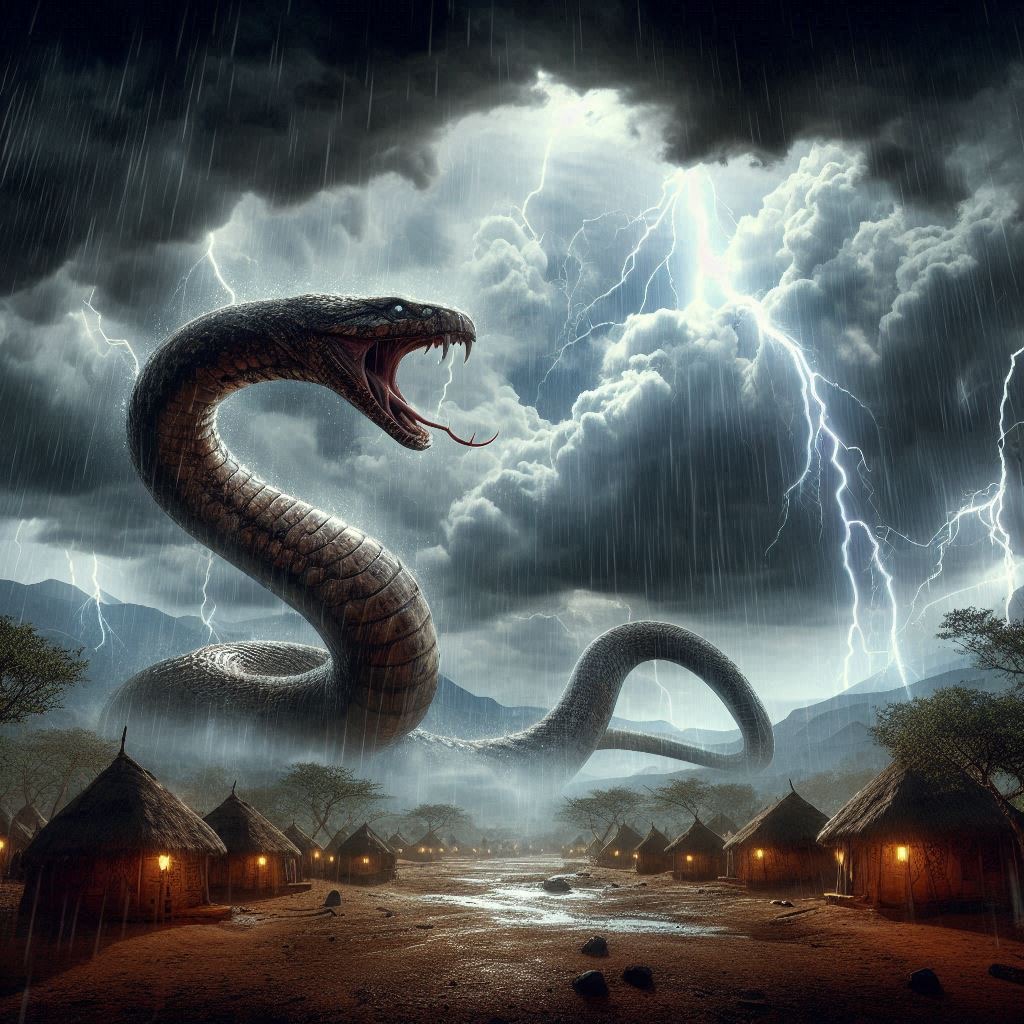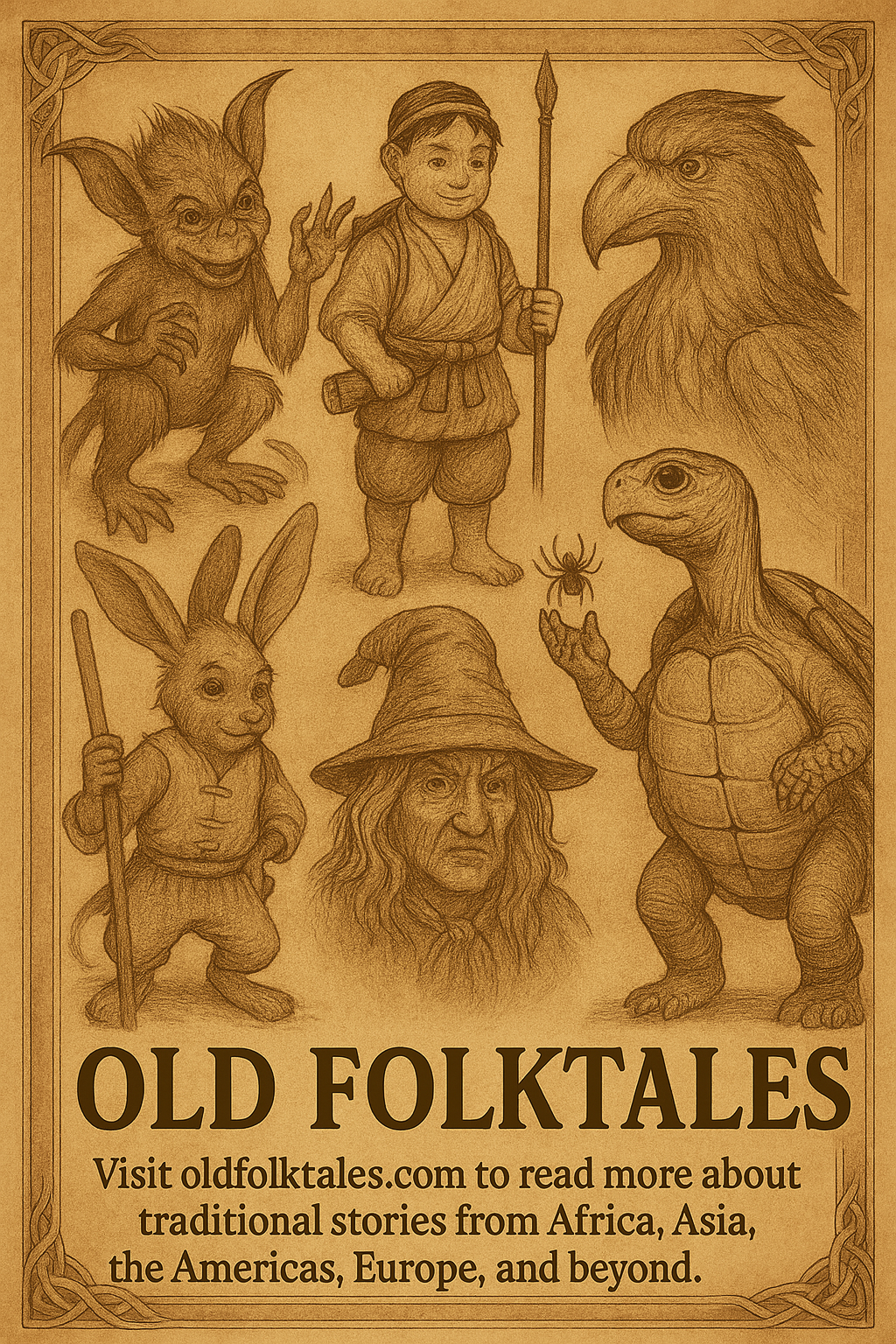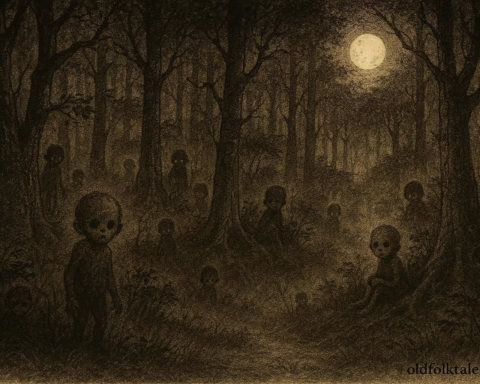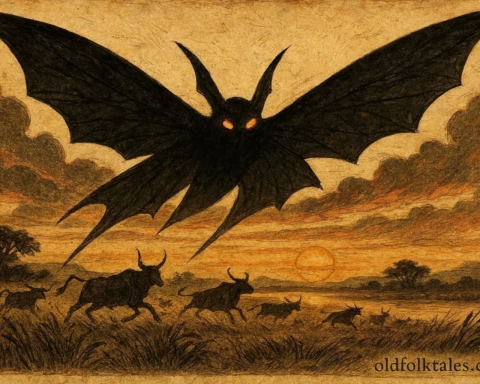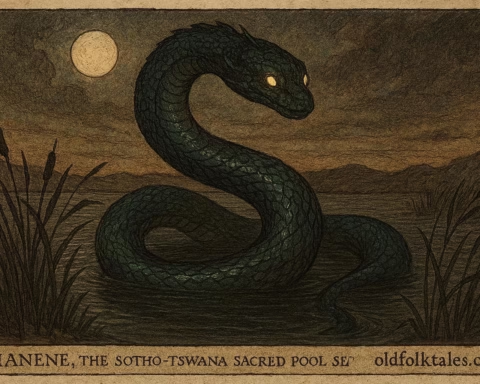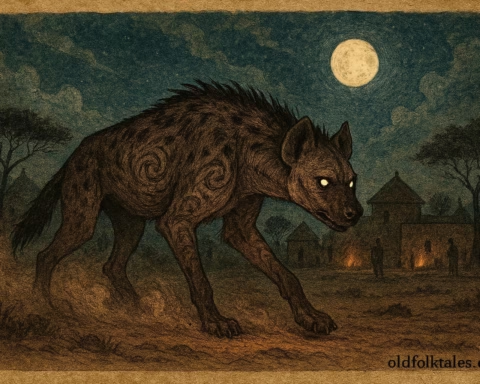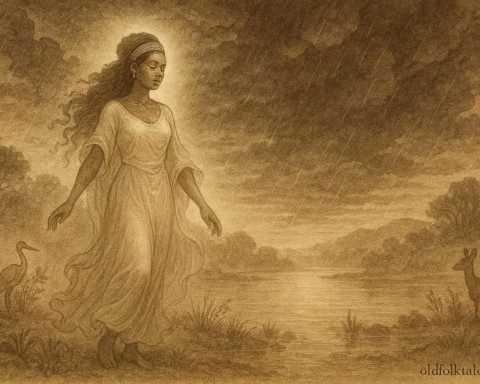In the early days when the rivers ran clear and the clouds answered the drumbeats of the rainmakers, the Zulu people believed that the sky and earth were one family. The clouds would bring gentle rain, the soil would drink it, and the crops would rise tall with pride. This harmony was protected by the Sky Keepers, wise men and women who knew how to speak with the elements.
One such Sky Keeper was an old woman named Nomalanga. She lived on the edge of her village, where the veld met the mountains. Though she walked slowly with age, her voice still echoed power when she called for rain. The people respected her, for the rain came only when she danced, drummed, and spoke the names of the sky spirits.
However, after years of peace, a young and arrogant rain caller named Thulani returned from the east. He had studied other methods, ones that promised faster rain and greater power. “Why should we wait for clouds to listen?” he asked the elders. “Let us command them. Let us feed the sky with stronger spells.”
Though Nomalanga warned him, Thulani ignored her. One night, under a moonless sky, he climbed to the sacred ridge where the rain drums were hidden and beat them with force. He chanted names no elder had spoken, names that belonged to deeper spirits who slept in the folds of the clouds.
The ground trembled. The trees stilled. A silence spread so thick the birds forgot their songs.
Then came a hiss. Long and low.
From beyond the clouds, a massive serpent emerged. It was longer than ten rivers and broader than the mountain path. Its body shimmered like storm water, and its eyes burned red like fire in the dark. This was uNomgqomqelo, the Rain Serpent, a creature known only in whispered legends.
It had once guarded the balance between sky and land but had been put to sleep by the ancestors after it tried to claim the sky for itself. Now, awakened by Thulani’s foolishness, it returned hungrier than ever.
The Rain Serpent opened its mouth and swallowed the clouds. With each gulp, thunder rolled across the land. Rain stopped falling. Rivers dried. Crops withered.
The people cried to the spirits. They blamed Nomalanga. They begged her to stop the beast. She said nothing, only lit a fire and sat in silence for three days, listening to the wind.
Then, she rose and called for Thulani.
“You broke the bond,” she said. “Now you must help fix it.”
Thulani, pale with fear, agreed.
Nomalanga took him and a small group to the mountain of echoes, where the Rain Serpent slept after its feast. They climbed in silence, barefoot, carrying no weapons. As they reached the summit, they saw the serpent coiled around a dying storm. Its belly glowed with stolen clouds.
Nomalanga stepped forward and began to sing. Her voice was rough like dry bark but filled with truth. The serpent stirred. When it saw her, it paused. It remembered the old rain keepers. It respected them.
She told the serpent of the people’s suffering, of the rivers’ pain, of the broken balance. She asked it to return the sky.
The serpent hissed.
“I was called. I came. I am hungry,” it said.
Nomalanga nodded. “Then eat me. But leave the sky.”
Thulani stepped forward. “No,” he shouted. “It was my doing. Let it be me.”
The serpent looked into his heart. It saw his pride, his guilt, and his change.
Then, with a great breath, it opened its mouth. A wind so strong it shook the valley poured from its jaws. Clouds, rain, thunder, and light returned to the sky.
It slithered into the mountain’s shadow and vanished.
Nomalanga smiled faintly. She laid her hand on Thulani’s shoulder.
From that day, no one beat the sacred drums without care. The people planted trees around the rain stones, and they passed on the tale of the Rain Serpent Who Ate the Sky, not to scare their children, but to remind them of balance and humility.
Moral Lesson
The story of the Rain Serpent Who Ate the Sky teaches the importance of respecting nature’s balance and the wisdom of elders. It reminds us that power gained without understanding can bring destruction. Only through humility, sacrifice, and listening to ancient knowledge can harmony be restored.
Knowledge Check
- What is the moral of the folktale “The Rain Serpent Who Ate the Sky”?
The story teaches a lesson about humility and balance, showing how pride and disrespect for tradition awakened chaos and nearly destroyed the harmony between nature and people. - What cultural group does the tale “The Rain Serpent Who Ate the Sky” come from?
This folktale originates from the Zulu tradition of South Africa. - Why did Thulani summon the Rain Serpent?
In the story, Thulani summoned the Rain Serpent out of arrogance and impatience, believing he could control the sky without honoring the old ways. - How does the folktale “The Rain Serpent Who Ate the Sky” explain the power of rain?
The story gives a traditional explanation for why rain must be called respectfully, as powerful forces like the Rain Serpent guard the balance between the sky and earth. - Is “The Rain Serpent Who Ate the Sky” a ghost story, origin tale, trickster story, or spirit tale?
“The Rain Serpent Who Ate the Sky” is a spirit tale, reflecting the Zulu belief in powerful elemental beings and the dangers of disturbing natural harmony. - Why is the tale “The Rain Serpent Who Ate the Sky” still meaningful to modern readers?
The story continues to resonate today because it teaches lasting truths about humility, consequence, and respecting ancestral wisdom, which remain relevant across generations.
Cultural Origin: This folktale comes from the traditional beliefs and storytelling practices of the Zulu people of South Africa.
